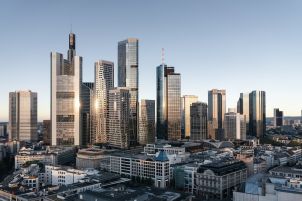Redefining the PM role in order to benefit users: The Property Manager play an essential role in the user experience
While PMs continue to be responsible for the rental, technical and operating costs management, experiences (collective, cultural and intellectual) are becoming important factors in the real estate business today. Different buildings offer different living and working experiences for tenants, based on their corporate culture. The fact that the design and management of buildings is now done through personalised solutions and approaches is a complete shift in the work of Property Management.
In addition, the increased use of digital technologies across the sector requires a new organisation of spaces and working methods. For example, office buildings are undergoing a transformation and tend to offer fewer individual offices and open-space areas, in favour of more areas for collaboration, sharing and exchange.

It's not the profession that has changed so much, but the market as a whole. The environmental, digital and experimental aspects are the three areas for transformation in our sector, and the property manager's role is to manage them jointly to ensure overall consistency.
Putting people at the heart of real estate
The PM is no longer simply someone who manages properties, but someone who also manages services and people. Users are looking for more personalised and adaptable services, and the PM is there to support them. The role of a PM is to be at the junction of sociability and collaboration and always maintain a focus on serving customers. Human capital is the main resource of companies.
Property management no longer has the goal of industrialising processes and services, but of designing tailor-made and high-performance solutions. There is no such thing as a one-size-fits-all model. This is borne out by analysis of the property's data and surveys of the emotional state of users, which reveal that the expectations and interactions differ from one building to another. The challenge lies in the ability to interconnect these elements and roles to achieve a global real-time overview of the building. This collection of data aims to bring real estate ever closer to the people using it.
“As part of designing this new work experience, property managers rely on two pillars. The first is support and advice, and the second is reliability and trust. Bear in mind that digitisation does not reduce human interactions. On the contrary," says Csongor Csukas.
Industrialisation continues to be used to drive operational efficiency.

This vision that we call 'Human Estate' is based on a collaborative approach and a strong data culture. There are several stakeholders involved in the management of a building. Our goal is to simplify exchanges using tools such as PDI (Property Data Insight), which combine all of the building's data and user feedback to break down walls and manage the building more collaboratively.
We expect our Property Managers to have a complete understanding of the buildings they manage. They must have a measurable positive impact and aim for an optimal customer experience. That's what we mean by 'Human Estate'. says Magali Michel.
Data analysis improves building performance
The goal is to better control what is happening in the building in order to identify potential problems and needs and more quickly satisfy users. In addition, analysis of user feedback leads to improved services and a more efficient environment. This tool also enables personalised reports based on the strategic goals of the owners. It aims to improve the efficiency of real estate in terms of the environment, management, costs, user satisfaction, etc.
“We are working with NPS (Net Promoter Score) to enable us to learn more about our customers and buildings. Feedback leads to improved service offerings that allow us to more accurately measure our impact on buildings, their performance and the user experience." says Csongor Csukas.
This vision of Human Estate adds meaning to the work of the Property Management teams. The pooling of knowledge, expertise and collective experience enables us to truly meet the needs of each client and each building. Making changes and corrections along the way means we can refocus our thinking so that each building is managed on a more individual and user-friendly basis. We consider the teams as a strategic partner.




